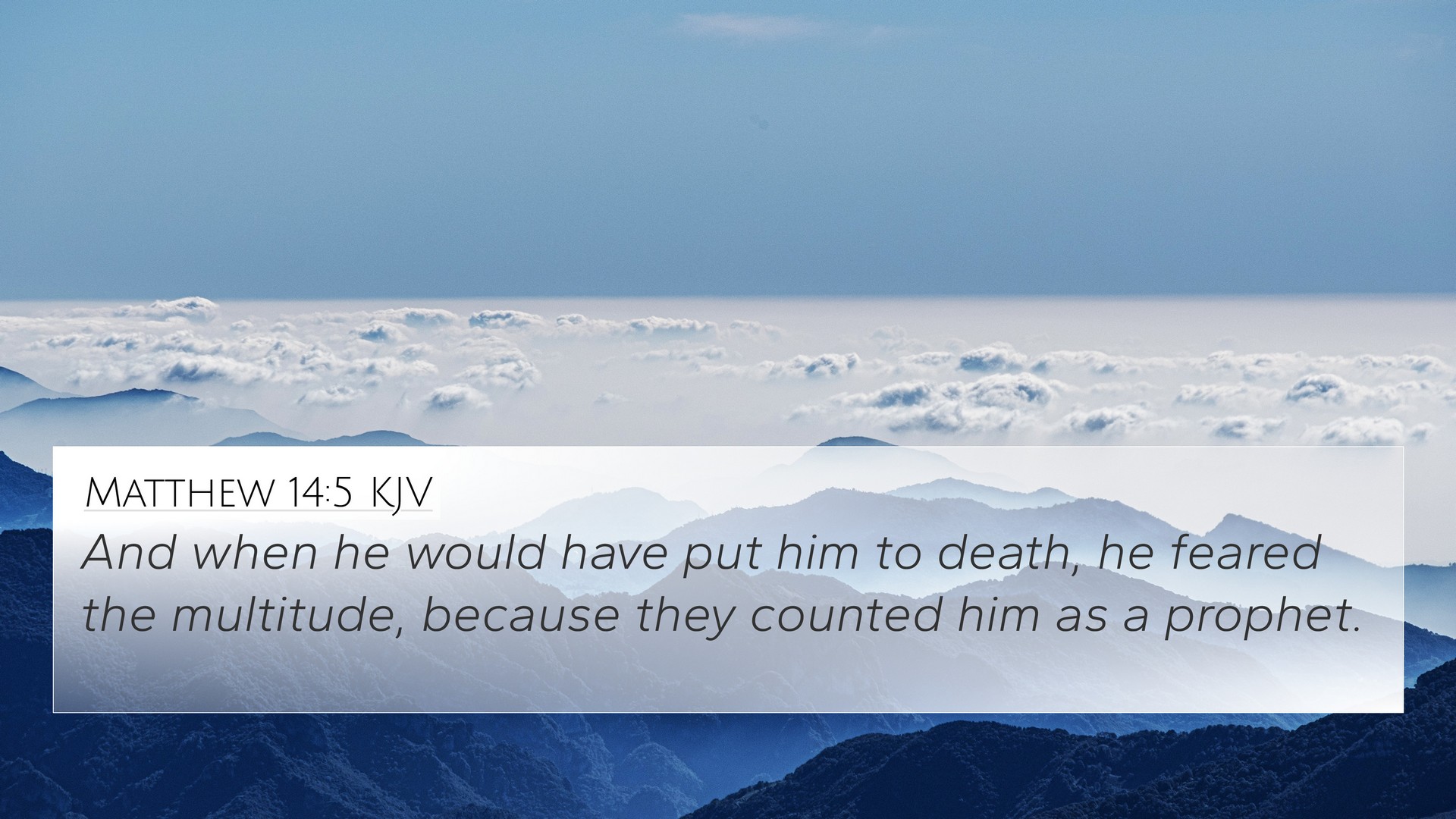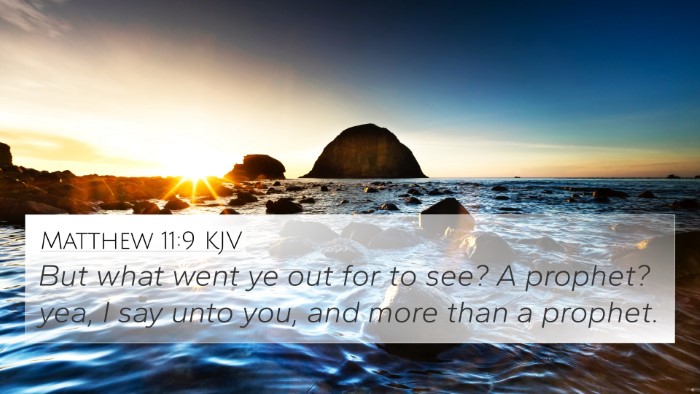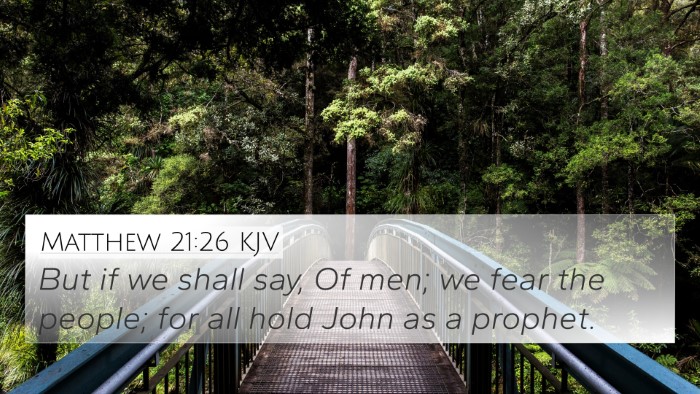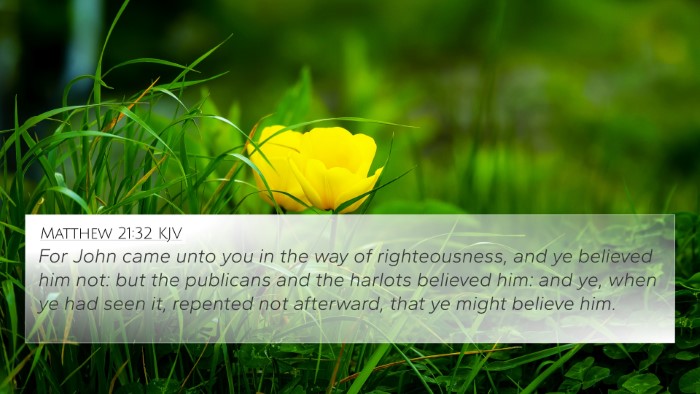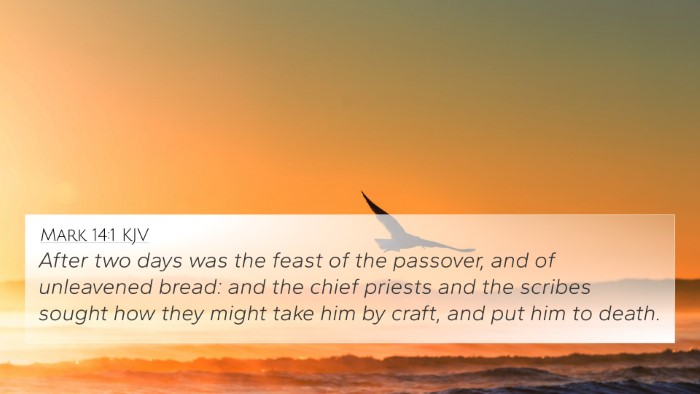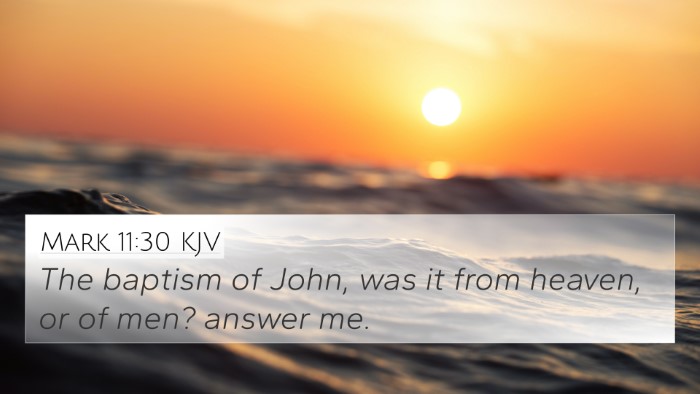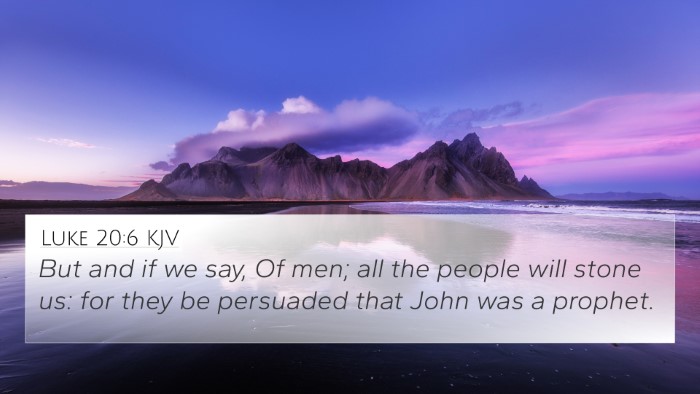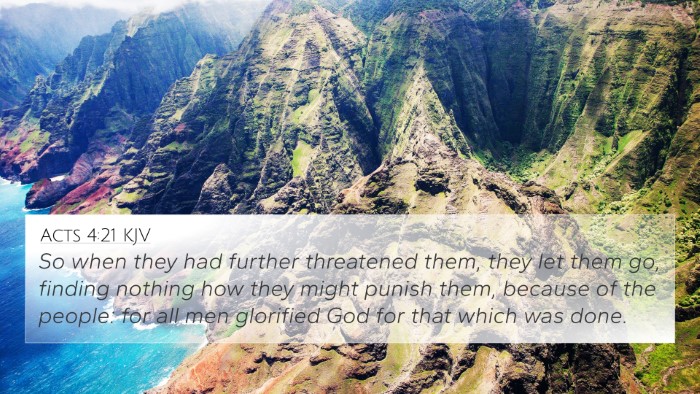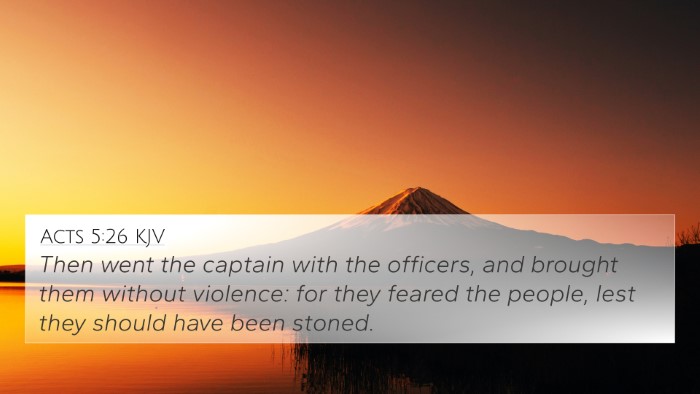Bible Verse: Matthew 14:5
Verse Summary: This verse discusses Herod’s conflicted feelings about John the Baptist, suggesting both fear and respect, as he is hesitant to execute a man who has spoken the truth.
Meaning and Interpretation:
The significance of Matthew 14:5 revolves around the tension between authority and morality. Herod, a ruler of dubious character, felt the weight of public opinion and the moral claims made by John the Baptist.
As noted in Matthew Henry's Commentary, Herod recognized John as a prophet and was aware of the righteousness and holiness that characterized John’s life. This acknowledgment placed Herod in a moral quandary; he was torn between an unjust act of political expediency and the sense of reverence towards a man who conveyed God’s truth.
Albert Barnes emphasizes that Herod's fear is depicted as both a fear of the people and a fear of divine retribution; thus, he hesitated to act against John despite the pressures he faced.
Adam Clarke's Commentary further elaborates that the fears Herod experienced reflect deeper themes of accountability and the overarching spiritual conflict that exists between worldly power and divine truth.
Cross-Referencing Related Scriptures:
- Mark 6:20: This parallels the account of Herod's respect for John and his fear of the people.
- Luke 3:19-20: Records John's confrontations with Herod, illustrating Herod's moral struggles.
- Matthew 14:1-2: Gives context to Herod's perception of Jesus as a resurrected John, showing the impact of John's truth-telling.
- John 3:20: Discusses the nature of darkness and the refusal to come to the light, reflecting Herod's internal struggle.
- Isaiah 40:3: A prophecy concerning the forerunner, shedding light on John’s role in preparing the way.
- Acts 13:25: Refers to John’s ministry and his acknowledgment of the one greater to come, linking to the nature of prophecy.
- Matthew 11:11: Jesus’ affirmation of John as the greatest among those born of women, highlighting John's prophetic significance.
- Matthew 21:26: Jesus alludes to John’s authority and the people's views, emphasizing the influence John had over the populace.
- Revelation 11:10: Where the two witnesses' deaths bring rejoicing, comparable to the response to John’s martyrdom.
- James 4:17: Illustrates the moral implication of knowing right and not acting upon it, a lesson Herod embodies.
Thematic Connections:
Within the biblical narrative, Matthew 14:5 interacts with broader themes of authority, fear, and the truth of God's Word. The interplay between John the Baptist’s ministry and Herod's leadership underscores the conflict often present when divine truth confronts human authority. Matthew Henry provides insight that this reflects a continual struggle faced by believers in standing for truth amidst fear of reprisal.
Moreover, cross-referencing Biblical texts can enhance our understanding of Matthew 14:5. Tools for Bible cross-referencing such as a Bible concordance or a cross-reference Bible study guide promote deeper exploration of this thematic landscape.
Conclusion: Matthew 14:5 serves as a poignant reminder of the difficulties associated with adhering to divine truth in face of conflicting interests. By analyzing cross-references and thematic connections, we can gain a clearer picture of the sorrowful reality of Herod's reign and a deeper appreciation for the legacy of John the Baptist.
